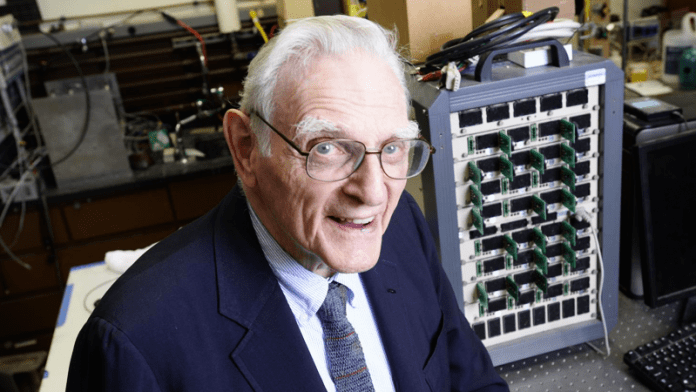Now the creator of lithium-ion batteries, in collaboration with a team of a researcher, says he has created a much better alternative. For those who do not know, John B. Goodenough was the great inventor of lithium-ion batteries. At age 95, from the University of Texas professor, in collaboration with his team, has created a (real) alternative to traditional batteries. These new batteries guarantee greater autonomy (about 3x), allow fast-charging, are non-combustible which guarantees greater safety in terms of fires and explosions. This alternative is defined as being a solid state battery, which uses crystallized electrolytes that allow the use of an alkaline metal anode. Traditional batteries have an anode, an electrode through which positive electric charge flows into a polarized electrical device. They also have a cathode, which causes the (conventional) current to flow inversely, that is, to the outside of the device. Changing a liquid electrolyte to a solid prevents, for example, the creation of dendrites (a style of lithium filaments) that are commonly found in rechargeable lithium batteries and accumulate over time, leading to deterioration of Battery and short circuit. The advantages do not stop here. According to the statement, “the solid-glass electrolytes can operate, or have high conductivity, at -20 degrees Celsius, this type of battery in a car could perform well in subzero degree weather. This is the first all-solid-state battery that can operate under 60 degree Celsius”. It means this new solid-state battery is also more economical and can operate at temperatures between -20 and 60 degrees Celsius. This research is gaining prominence worldwide. Curiously, one of the elements that are part of Goodenough’s team is the Maria Helena Braga. According to the information, the researcher began her research at the University of Porto and about two years ago began working with John Goodenough and with researcher Andrew J. Murchison at UT Austin. However, according to the reports, this new technology based on solid glass-based ethers which have been born at the University of Porto and then only evolved.
Δ


